"Double Haters" and The Benefit of Competitive Partisan Campaigns
It's become too trendy and lazy to say you hate both candidates; make a choice. And Kamala Harris's campaign proves the benefit of open, competitive primaries and general elections
I’m so tired of reading stuff like this (emphasis added):
Unlike all too many journalists I do not calculate the impact of my writing on either campaign. It’s easier than usual to be neutral as I consider both candidates utterly abhorrent. Both candidates represent a potential disaster for America and the West.
Demographer and journalist Joel Kotkin, Chapman University
Don’t get me wrong; I’m a big fan of Dr. Kotkin’s excellent work. I agree with him more than not and learn even more. I’ve quoted him from time to time on these pages. But I’m tired of the cop-out about both candidates being terrible or, as he hyperbolizes, “utterly abhorrent.” Please. Of course, it’s now fashionable to trash both candidates, and he’s not wrong in many respects. We’ve been saying this about our choices for about 224 years and maybe longer, at least since 1800. Next, please.
Michael Rectenwald, who unsuccessfully sought the Libertarian Party nomination for president this year, mocks it appropriately:
Tomorrow is the Big Day, when Americans who haven’t already done so, will choose between Hitler and Stalin, between fascism and communism, between rule by the garbage people and rule by the eminent experts of “bluegeoisie.” America will either retain the current rule by a puppet of the deep state, or reelect the Orange Dictator.
That sums it up. I see you nodding.
A lot of that is due to “socialization.” It’s an easy cop-out to say you don’t like either major party candidate, and you think it makes you look sophisticated. But you’re copping out of a more valuable discussion about what’s at stake in the election. After, you’re less likely to offend something if you criticize both sides.
Political scientists have noted for years that the main drivers of political socialization are family, school, peers, and the media, broadly defined these days to include your Facebook “friends” and follows on X and elsewhere. People follow the lead of those they trust and are terrified of being scorned or rejected by their friends and social circles. You don’t want to be That Person. If you enthusiastically support your candidate, you’ll be seen this way as these Harris and Trump supporters see each other as reported by ABC:
“I would say that some of them are garbage,” said Samantha Leister, 32, who went to see Kamala Harris at a rally in Harrisburg, Pennsylvania.
“I just think they are uneducated, and they believe all the lies,” said Shawn Vanderheyden, 44, who went to see Trump with his wife and two young daughters. “It’s unfortunate.”
More than one friend has looked at me in pity and said, “I can’t believe you’re willing to vote for him again.” When someone tells me they can’t vote for Trump, and it appears they’ve made up their mind, I nod and say, “I understand.” Sometimes, I’ll joke and say, “Vote Wednesday,” although that might subject me to prosecution nowadays. Discretion is advised, and humor is usually the best medicine. And to everyone who votes, I thank them for participating in our democracy.
I even thank and give a thumbs up to the Democratic poll workers I walk by. It says a lot that people are willing to stand outside and risk abuse to pass out sample ballots. There were a bunch at my early voting station last week. At least the weather was nice.
I must admit this. I’ve lost friends over political differences, most involving Trump. I’m not proud of that, and it saddens me. Often, it's in the form of unfriending someone on Facebook who trolls my posts with inaccurate, sometimes bizarre blatherings. I can only take so much. No offense, but “unfriending” someone on Facebook is not a big deal. I don’t keep track and don’t care. It’s not how I measure friendship, and neither should you. If I’m not your friend anymore, you have to tell me, or vice versa. In-person, face-to-face. “Unfriend” me on Facebook, and I won’t notice or care. Perspective, people.
Given my career in politics and government, I’m blessed to be one of those that some of my family and friends turn to when they’re in doubt or have concerns. I am humbled when asked for my analysis and views, which I try to deliver calmly, clearly, and respectfully. I often ask more questions than I answer. In doing so, I help people come to their conclusions while gaining valuable insights that inform my own. I never assume that everyone has to agree with me, nor do I pretend to be a font of all knowledge and wisdom. And yes, I do a little “double hating,” if only to relate to their predicament.
It’s not civil, healthy, and usually inaccurate to assume people who don’t think like you are stupid or “garbage.” I don’t believe double-hating is healthy, either. As my friend Ed Goeas, a Republican pollster, and his co-author and Democratic pollster, Celinda Lake outlined in their excellent book, it’s “A Question of Respect.” After all, election season will come and go (eventually), and our neighbors, friends, and peers will still be around. If you only hang around people who think just like you, one of you is unnecessary. And that’s a boring way to live. “God uses imperfect people,” my pastor said during his biennial election sermon a month ago.
But my problem here isn’t with Harris or Trump fans. They have their reasons, and I’ve heard them all. I won’t recount them here. My problem is with the “double haters.” Maybe because I’ve been one.
In 2016, then something of a Washington insider, I was appalled by Donald Trump, but even more so by Hillary Clinton. I supported someone else in the GOP primary, and I found Trump’s comportment and rhetoric insufferable, his character deficient. I considered all my options as I stared at my absentee ballot for almost three weeks. I changed my Pennsylvania voter registration from Republican to Independent after Trump became the de facto nominee that April.
However, I still voted for Trump because something more important was at stake: The US Supreme Court. I feel vindicated. Can you imagine a Supreme Court stocked with 3-4 Hillary Clinton nominees? I’ve since rejoined the GOP, even as we don’t have party identification in Virginia, where I now reside.
Maybe I’ve gotten over the shock of Trump’s influence over our political discourse and culture and accepted it for what it is. I also spent much of my 40-year political campaign career trying to win blue-collar appeal for my GOP candidates for Congress, with marginal success. The GOP is now that party, with the increasingly woke managerial and academic class having turned blue, which I did not see coming (well, at least in the corporate world). It wasn’t quite what I envisioned, but so be it.
None of the “October Surprises” this year hit me like the infamous Access Hollywood tape scandal from 2016, which Democrats are now resurrecting. Conversely, Trump is a different candidate today than eight years ago. Oh, sure, he still wildly exaggerates and suffers from vast rhetorical imprecisions, and don’t get me started on Harris’s cavalcade of bad media and podcast interviews when she’s done them. But I have four-year records by which I can compare them. Vice presidents are not presidents, but Harris brags about being the “last person in the room” before Joe Biden decides, as much as he does. Harris famously told the legion of intellectual behemoths on “The View” that there wasn’t one decision nor policy on which she disagreed with Joe Biden.
I’ve also been alarmed by the politicization of the US Department of Justice to conduct all manner of “lawfare” against Trump (and others) and by the massive efforts to censor our media (and me) and manipulate our elections, as exposed in the “Twitter Files.” I’m alarmed at ten million-plus illegal border crossings in the past four years and that grocery prices are 25 percent higher than they were in early 2021. Biden’s horrific, tragic, and incompetent handling of the Afghanistan withdrawal in 2021 is unforgivable and not only a national embarrassment but inspired Putin to invade Ukraine. The Biden Administration is funding all sides of the war in the Middle East as well as the Russian invasion of Ukraine.
But don’t take my word for it. How about that of Alex Berenson, author and former New York Times science writer who is no partisan and to my left politically:
Donald Trump’s rhetoric is vicious. His unwillingness to promise to abide by the results of Tuesday’s election is dangerous. His friendly attitude towards dictators like Vladimir Putin disheartens me. And though I hate abortion I do not support overturning Roe v Wade.
Yet.
Yet when I pull back and consider the issues, I see:
It is the Democratic Party that stands against free speech; that forced mRNA vaccines on tens of millions of healthy adults; that opened America’s southern border until public outcry forced it closed; that supports decriminalization of drugs and “decarceration” of violent criminals; that presides over one giveaway after another to its favored interest groups; and that is willing to risk the American economy over its fears of climate change - it has, with little notice, pushed through regulations that will make gasoline-powered vehicles all but unaffordable within a decade.
What exactly does Kamala Harris stand for, if not more of the same?
As I shared earlier, it really boils down to an election between those who want to control us and those (like me) who don’t want to be controlled.
Ronald Reagan (and others) famously said, “Personnel is policy.” Presidencies are team efforts, with new Presidents and Vice Presidents bringing about 4,000 politically appointed officials to manage and lead a nearly 3 million strong federal workforce (not counting the 1.3 million active duty military personnel, down 41 percent since 1987).
If you add at least another 3.7 million federal contractors, about 8 million people have jobs tied to the federal government. And that’s being conservative. Some say the federal “workforce,” including the military, postal service, full-time employees, and contractors, totals 9.1 million.
Double-haters need to get over themselves, stop boring the rest of us, and decide what they want America to look like in four years. And it’s pretty easy, just looking at the past two four-year terms filtered through the prism of a well-informed and faith-based worldview.
Oh, sure, you can vote for Libertarian Chase Oliver, Green Party nominee Jill Stein, Dr. Cornel West (where Democratic lawyers haven’t gotten him kicked him off the ballot; democracy, you know), or write in your favorite dead US Senator. Practically speaking, you face a binary choice; this is no time to sit on the sidelines, fold your arms, and complain. Just hold your nose and vote, already. Besides, plenty of other races feature candidates you should be more excited about.
Candidates from “one party” states
There will be plenty of time for post-mortems after this election season finally passes (whenever that is). Still, partisans can agree on one thing: having a nominee who has been through the wringer of competitive primary and general elections, especially in the past, is a benefit. It is not fun or easy for many candidates or voters, but there’s something about making it through the crucible that prepares and trains a candidate to win and govern. “It strengthens the sinew,” as I recall a line from the great Ted Turner-produced movie, “Gods and Generals,” about life in Maine during winter.
Donald Trump was a first-time candidate when he ran in 2016, but he faced at least a dozen other talented primary opponents, including largely successful Governors (Scott Walker, Jeb Bush, Chris Christie, Jim Gilmore, Mike Huckabee) and US Senators (Rick Santorum, Ted Cruz, Marco Rubio, Rand Paul). It even included a significant company CEO (Carly Fiorina) and a famous pediatric neurosurgeon (Ben Carson). None were the products of one-party political machines dominating a few states.
California comes to mind.
The Golden State no longer has a fully functional Republican party. It hasn’t elected a Governor since Arnold Schwarzenegger’s second term in 2006 (how did that work out?) along with Insurance Commissioner Steve Poizner. The California legislature is overwhelmingly Democratic. Only 12 of its 52 US House seats are held by Republicans. They haven’t elected a GOP US Senator since Pete Wilson was reelected in 1988. His appointed Republican successor (Wilson was elected Governor in 1990), John Seymour, was defeated in 1992. Since then, we’ve been feted with the Golden State’s best and brightest, including the late Diane Feinstein, Barbara Boxer, and . . .Kamala Harris. California is likely soon to bestow us with extremely partisan House-censured US Representative Adam Schiff.
Quick, name the other elected Senator from California. I didn’t think you could. His name is Alex Padilla, who succeeded Harris. The other Senator is an appointed caretaker from Maryland, Laphonza Butler.
They don’t have party primaries anymore in California. They have “jungle primaries” where all the candidates, regardless of party, run on the same ballot. In most California jungle primaries, most statewide runoffs feature two Democrats, rarely a Republican, except when so many Democrats run that it gives a single Republican candidate a chance, as happened in this year’s US Senate race. Baseball legend Steve Garvey is the GOP sacrificial lamb nominee facing Schiff.
However, one-party states don’t often have competitive primaries and don’t prepare candidates for the rigor of intense intramural and bipartisan competition. Being the nominee via a political coup without competing for a single national convention delegate or a significant state primary is not a recipe for success. Her support mainly comes from devoted Democratic partisans and people who hate Orange Hitler. Her failure to master a single media interview, even on friendly outlets, is all the proof you need.
A friend who is not a supporter of Trump but believes he’s likely to win this year asked me if I thought Trump would be “a better president” this time. It’s a great question. I think so. He’s admitted he made a few mistakes (mostly personnel-related) and learned from them. I think he’ll do better on the personnel front. His comportment is better this time around. He has a better grasp of issues and what he wants to accomplish. He won’t be distracted by reelection politics—he cannot run again. Some will consider him a lame duck from “Day One,” the 2028 election will start soon after that, just as the first House Democrat introduces the first impeachment resolution.
He seized opportunities to showcase his humor (wearing an orange vest and riding in a garbage truck) and even self-deprecation (Al Smith dinner in New York, Joe Rogan podcast). He’ll be able to hit the ground running with help from a very likely GOP Senate, at least for two years, until the mid-term elections. And he may have another House GOP majority, but who knows, or for how long. I just hope that if the Republicans continue to control the House, Speaker Mike Johnson won’t be held hostage by the Crazy Caucus. Speaking of crazy caucuses, how soon do you think House Democrats will introduce their first impeachment resolution if Trump wins?
I’ll go first: well before he takes office, on the first day of the new 119th Congress. Some crazy loon will cite the ever-useful January 6th “insurrection,” using the same nutty basis used by Colorado’s demonstrably inept Secretary of State when Jena Griswold ordered Trump off the state’s ballot (the US Supreme Court told her to pound sand). Bizarrely, a 4-3 majority on Colorado’s Supreme Court agreed with this nuttiness.
Or perhaps Democrats will wait, at the latest, for January 20th or 21st, after Trump fires the unconstitutionally appointed special prosecutor, Jack Smith. Maybe twice! You know it’s coming. I will start taking bets on how many times Democrats, especially if they win control of the House, send impeachment resolutions to the Senate.
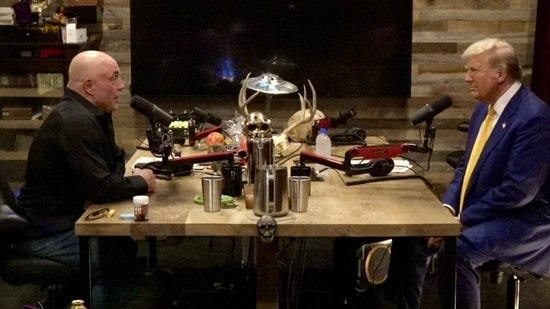
Harris’s best moment during the campaign was her debate with Trump, during which she had the substantial assistance of two ABC moderators. But that has long worn off. It’s been a slow, downhill descent ever since. The “brat” (whatever that is) and the joy is long gone, and the circular firing squads are assembling.
At least half of the roughly 150 million Americans likely to vote this year seem to have voted early, but too many states can’t competently count the votes on election night. Some of that is the Republican party’s fault in a few states for not letting mail-in votes be counted before election day. Other states don’t require that all ballots be received by election day - some states allow several days for mail to trickle in. The process may work better with fewer mail-in ballot requests this time, especially in Pennsylvania, which was overwhelmed (and worse) during the pandemic-cursed election. I hope for a clear verdict so we get a real concession, accept the results, and move along peacefully and patriotically.
Where have I heard that before?




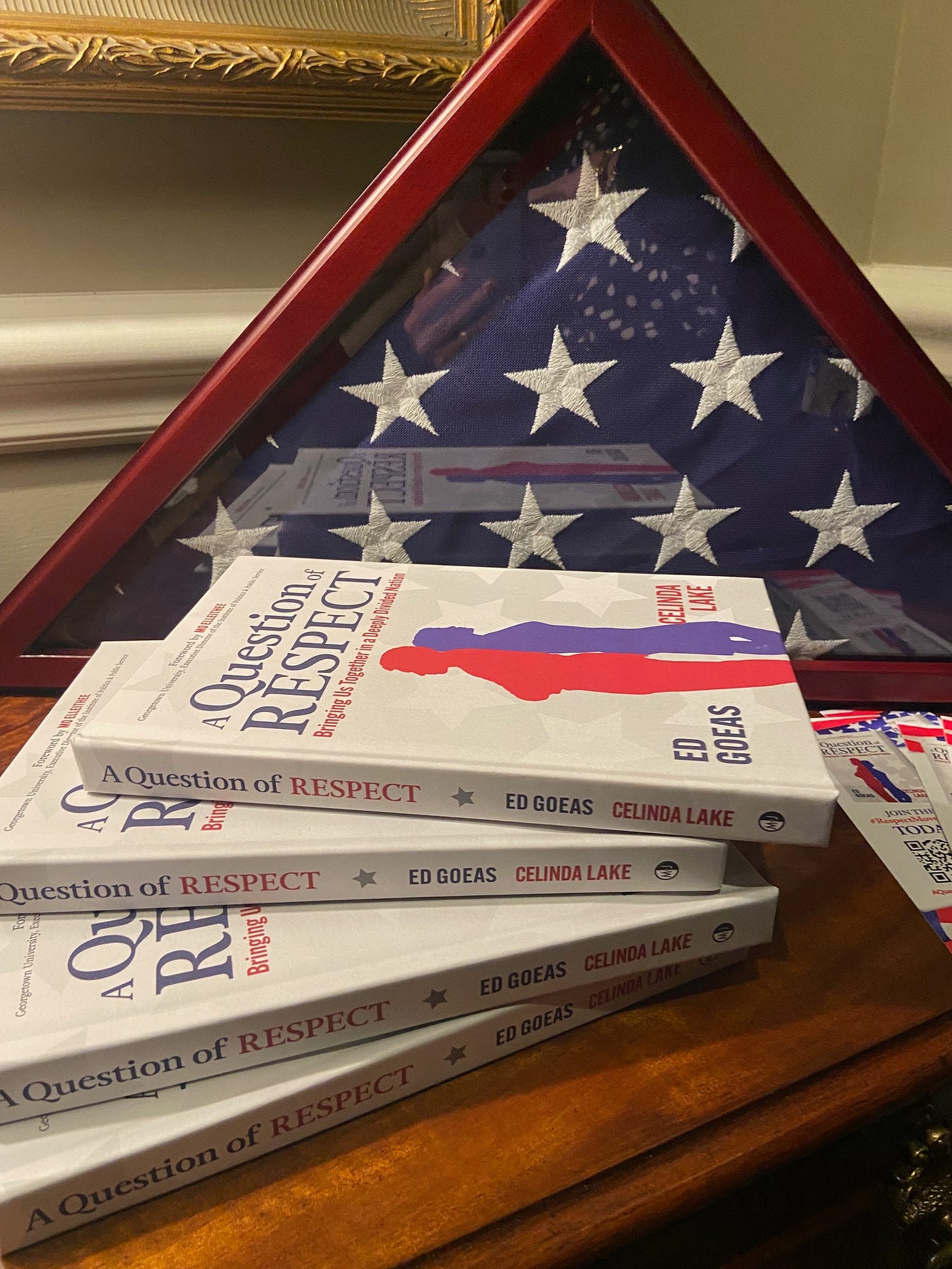
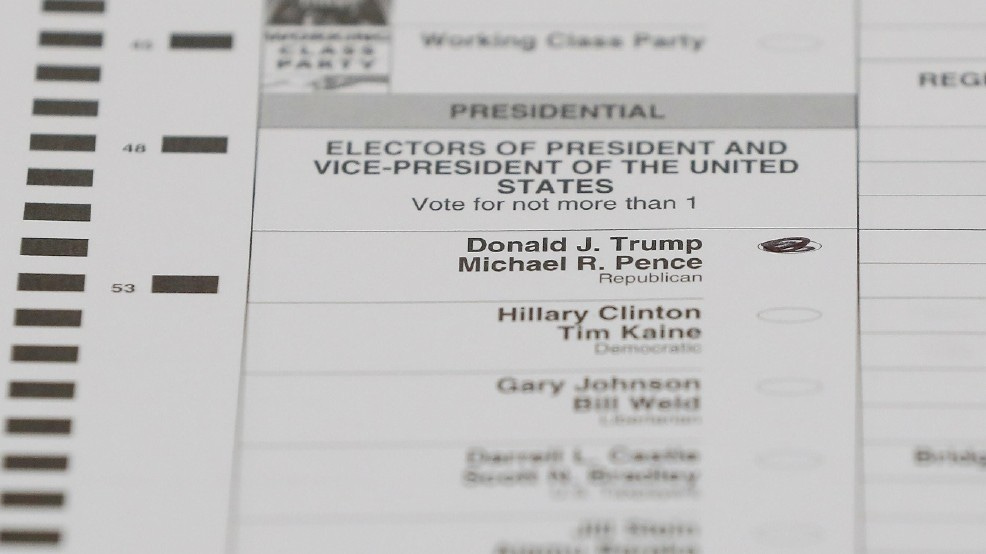
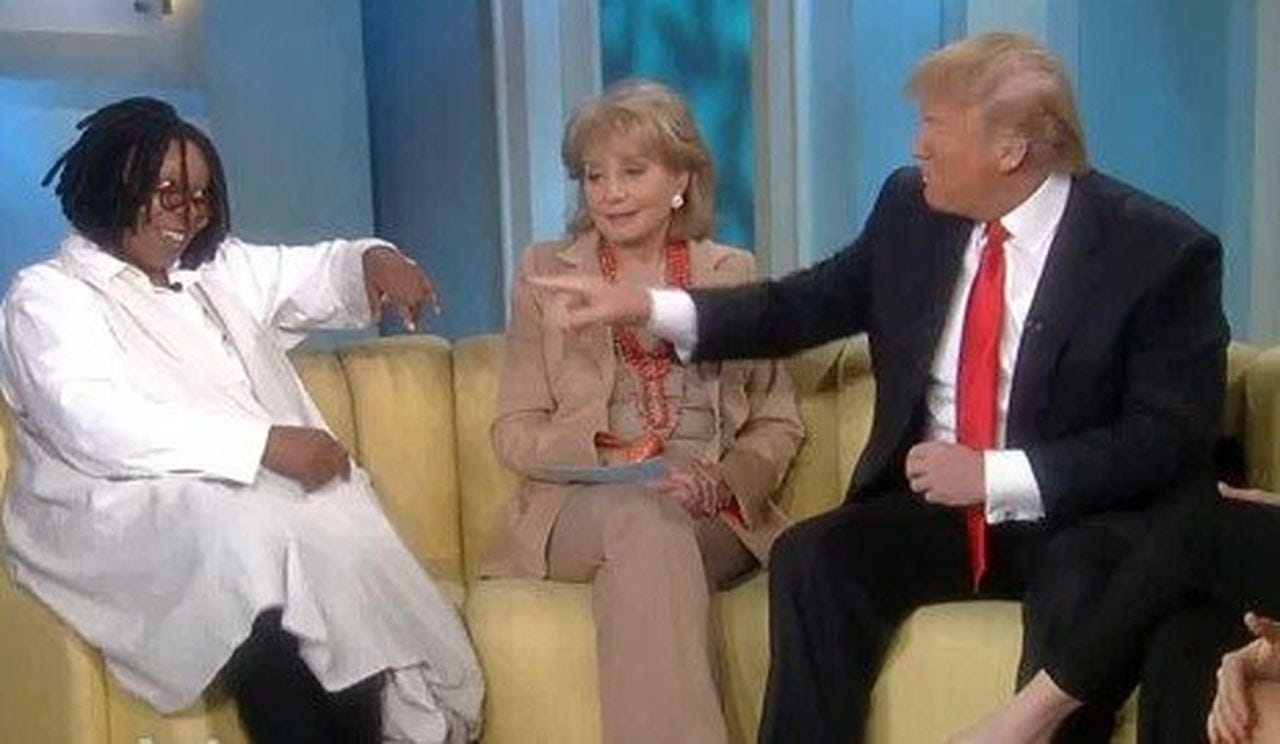
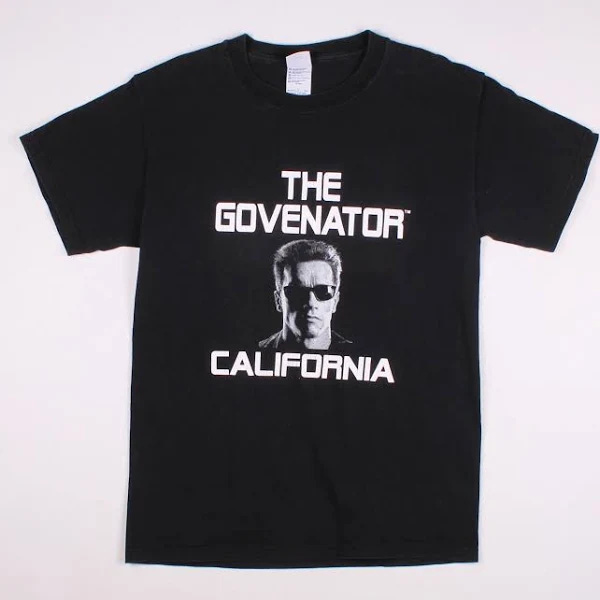
Don't forget the other form of double hatred. There are a whole bunch of people who may not like Donald Trump all that much, but they hate the people who hate him, and so they support him.
I agree with you about the double haters. I like the spirit of your column and am saddened by my fellow Democrats and anyone else who judges a person not by the content of their character but by the candidate they’re voting for. I’ll vote for Kamala Harris largely because I still feel about Donald Trump what you did of in 2016. I prefer to content of her character. Some of Trump’s comments about fellow Americans are too mean and unhinged to be worthy of support, but I won’t disparage friends who disagree with me.